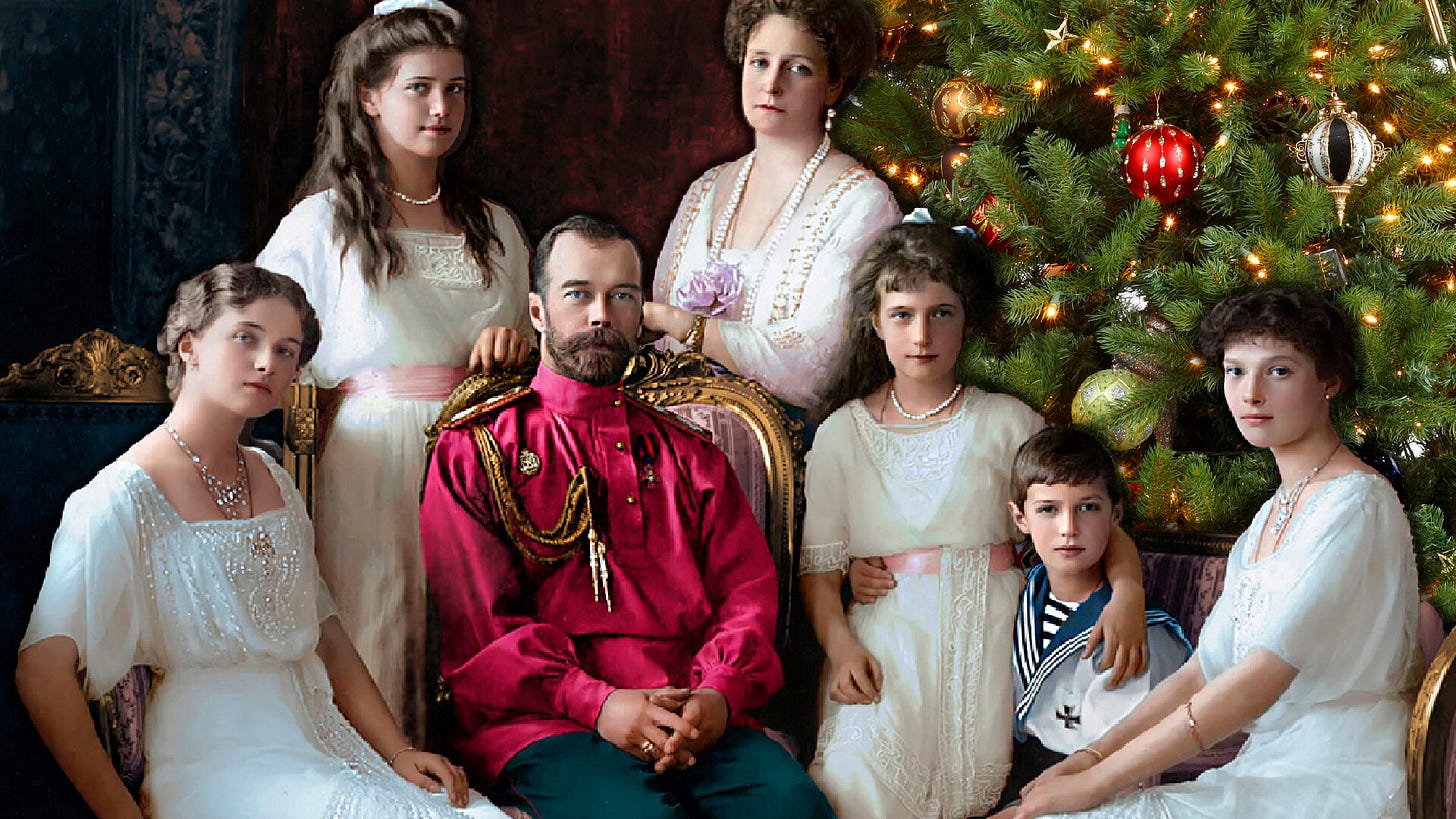On This Day in 1918: The Execution That Ended the Romanovs and Russia’s Imperial Dream
The brutal killing of the Russian royal family marked more than the fall of a dynasty
In the early hours of 17 July 1918, a royal family was marched into a basement, told they were being photographed, then gunned down without ceremony. But to understand why this happened and what it meant, you must first look beyond the gunfire and bodies. You must study the contours of a crumbling empire, the arrogance of power, and the quiet inevitability of its reckoning.
This is not merely the story of an execution. It is the final page of a book written in jewels and blood. The Romanovs did not fall because they were hated, but because they no longer mattered in the world they had helped break. Their tragedy is not singular. It is the tragedy of every ruler who mistakes divine right for immunity from consequence.
Echoes from a Ballroom
Five years before the end came, Nicholas II stood beneath chandeliers, proud and cheerful, toasting 300 years of Romanov rule. His eldest daughter Olga had her debut, dancing with aristocrats while St Basil’s bells rang out into the frosty Moscow air. It was theatre, lavish and defiant. At that moment, Nicholas believed history had bent to his will.
What he didn’t see was that the empire’s foundations were already cracked. The nobility’s waltz was mirrored by the rumble of stomachs across the countryside. The Tsar offered liberties, then withdrew them. He created a Duma, then ignored it. He promised reform, then unleashed secret police. He ruled a kingdom of symbolism, not substance, and symbols cannot feed the hungry.
A Revolution Fueled by Misery
By 1917, discontent had ignited into open revolt. War, famine, and failure had shredded the illusion of imperial competence. Nicholas’s train was stopped not by soldiers of an enemy army, but by his own people. His generals no longer begged for orders. They begged for his abdication. And he gave it.
But abdication didn’t mean absolution. The Romanovs, once divine incarnations of order and grace, became symbols of a hated past. Their captivity wasn’t only for safety. It was a spectacle. The Bolsheviks knew how to win minds, not just battles. Keeping the Romanovs alive was a daily reminder of the old regime’s irrelevance. Eventually, it became too risky. Symbols cut both ways.
The Illusion of Mercy
Even in exile, the Romanovs clung to the frayed thread of hope. The children were still young. Olga still dreamed. Alexandra still prayed. They whispered about the White Army, imagined rescue, rehearsed return. They even sewed jewels into their clothes, a last gasp at reclaiming control. But power had shifted to people who didn’t believe in kings or queens.
When the guards came on that final night, they told the family they were to be photographed. It was cruel, deliberate theatre. The kind a toppled regime might use in reverse. But this was not about truth. It was about message. The Romanovs were not being executed for their crimes. They were being erased for what they represented.
The youngest, Alexei, only thirteen, was too sick to walk unaided. The daughters, still barely into adulthood, had survived the first bullets only because their clothes were armoured with diamonds. Then came bayonets. It was a medieval ending for a modern revolt. The Bolsheviks buried the bodies, then doused them in acid. Not out of necessity, but because they understood history’s hunger for relics.
History as Justice, or Just Blood?
Some say justice was served. That the Romanovs, oblivious to suffering, were no great loss. But execution is never clean. It stains both the victim and the executioner. When the Soviet Union finally admitted the truth in 1991, it did so not to clear conscience, but to clarify legacy. For over 70 years, the murders were a rumour, a wound wrapped in silence.
Yet there’s a caution in that silence. Empires fall not always with cannon fire, but with whispered betrayals, missed warnings, blind optimism. The Romanovs died in a dirty basement, not because they were evil, but because they no longer had a place in a world that had evolved without them.
Nicholas believed in divine rule. Lenin believed in the people’s revolution. Both are ideologies. Both are dangerous when wielded without humility. The tragedy of 17 July 1918 is that no one in that basement mattered anymore. Not to history. Not to justice. Not to survival. They were ghosts of a past already overtaken by events.
Final Thoughts on This Day
On this day, 17 July, I ask readers not to mourn the Romanovs as martyrs, nor cheer their deaths as victories. Instead, study their fate as a lesson in political arrogance and the speed of societal change. Nicholas II believed his empire eternal. Lenin believed revolution complete. But history is indifferent to belief. It listens only to action, to movement, to people.
The Romanovs were not slaughtered because they were cruel, but because their existence conflicted with the new vision of power. If there is tragedy here, it is not just in how they died, but in how they lived without listening. And that, more than gunfire, is what brings down empires.


